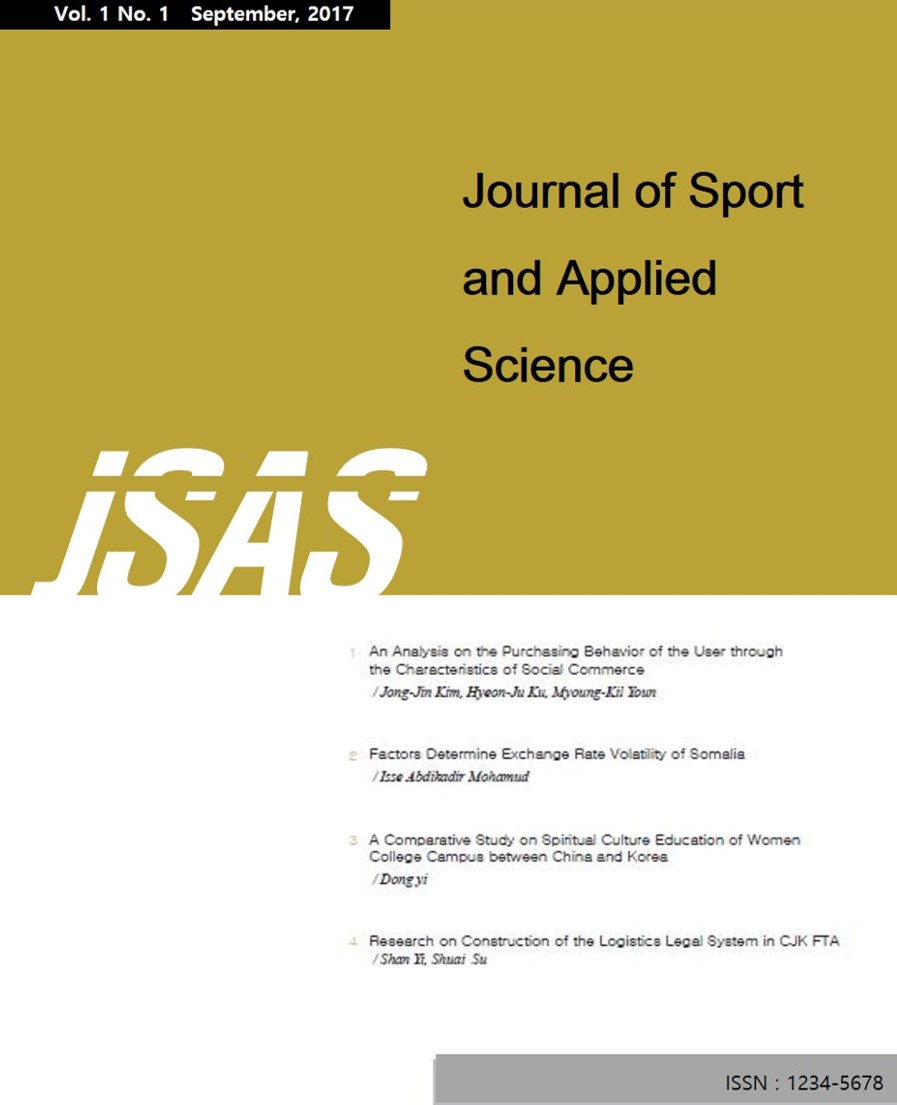 E-ISSN : 2586-6028
E-ISSN : 2586-6028
Vol.3 No.1
Abstract
Numerous types of sporting events have been hosted in Korea during the last decades. Sport events produce various types of data, and there is a clear necessity of storing and utilizing this information. From this background, the purpose of this study is to draw complex sports categories from international sport events life cycles in order to categorize standards of knowledges management system. This study utilized qualitative methods: expert groups discussion for overall life cycle steps and in-depth interviews for detail life cycle steps. The results show that there are several life cycle steps: bidding, preparation, operation, evaluation, post management steps. To be more specific, for the bidding step, there are check, plan, implementing detail phase; and the preparation step is based on event preparation Basis Build, event preparation implementation, test and supplementation phases. For the operation step, event operation system switch, event operation during the period, finish operation phases are deducted. Evaluation and post management step do not have detail phases. Efforts to store and utilize knowledge can be one of the starting points to make the operation of sport events efficiently.
Abstract
Purpose: Children's swimming pools are picking up faster than the other types of swimming pool. Yet, safety law-related studies are still lack. This study is to review legal status of children's swimming pool in Korea and to discuss the related legal issues for safety management of children's swimming pool. Research design, data, and methodology: The study reviewed law and clauses for sport facility management and related legal clauses with chilren's swimming pool management, and sport facility-related articles. Results: Safety management of children's swimming pool should currently follow law for sport and physical education facility management because of no its own legal norm for children's swimming pool. Given this, specific law and clauses for children's pool management need to be legislated to prevent risks for children and to satisfy specific safety factors considering careless behavior of children. Conclusions: Regarding this, the study points out five suggestions. First, law should be established to make notification of safety rules mandatory and this notification should be placed in the pool. This notification would be better effective if it is visualized. Second, according to law, safety 7 rules of children' s swimming pool need to be legistrated and educated for pool managers to obey them. Pool managers could also add their own rules to the 7 rules. Finally, preparation of emergency kits and safety devices need to be mandatory in the pool. Further implications were discussed.
Abstract
Purpose: Mountain biking as a sport and recreational activity has grown rapidly over the previous two decades. The purpose of this study is to analyze differences of leisure satisfaction by demographic characteristics of mountain bike participants. Research design, data, and methodology: To accomplish the purpose, the study employed purposive sample method among nonprobability sampling and collected data from 300 participants. Of collected data, 288 responses were analyzed excepted for uncompleted responses. To analyze data, study utilized statistical techniques including descriptive statistics, reliability analysis, independent-sample t-test, and one-way ANOVA, and to verify difference between individual groups in relation to significant results, Duncan's multiple range was conducted. Results: Findings indicated no differences of leisure satisfaction by gender. Similarly, education level and occupations have not influence leisure satisfaction. Yet, differences of leisure satisfaction by participation frequencies were observed. Of participation frequencies, participants riding 5 times a week were more satisfied with MTB participation than the other groups participating less 3 times a week. Conclusions: The findings provide a couple of insights in terms of promoting MTB participation. In specific, results indicated that MTB would be attractive sports that is able to appeal huge populations regardless of their education and occupation. Furthermore, consistent participation is judged an effective way to increase psychological, educational, and social satisfaction. In this sense, regional MTB clubs could play a salient role in motivating riders to more participate in MTB. Hence, establishing strategies for encouraging club activities are needed.













